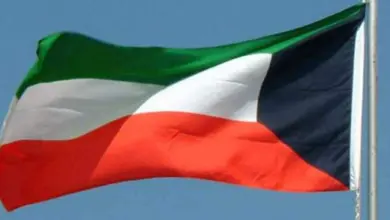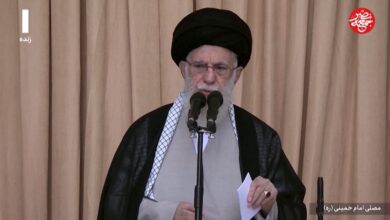Herodotus, the ancient Greek historian, described Egypt as “the gift of the Nile” when he visited it in the fifth century BC. At the time, Egyptians had already gathered around the Nile–perhaps some 10,000 years before that–to create one of the most ancient civilizations in the world. And King Menes managed to join Upper and Lower Egypt forming the first centralized country more than 3000 years before Christ.
Civilizations usually rise around river drainage basins and not river sources, because near a river drainage, the water tends to flow more slowly and steadily, allowing a quiet and peaceful life on its banks. At the source, by contrast, the river normally has several tributaries and its water flows massively. Therefore, most civilizations were created closer to river drainage basins, and the Egyptian civilization is no exception.
The Blue Nile flows across Ethiopia into Sudan, carrying silt and sediments which it deposits on its way into Egypt such that only very fine particles remain to be deposited in Egypt. As a result, Egypt has some of the most fertile land in the world.
The chemical composition of the Nile water makes the land fertile and at the same time allows plants to survive. The very fine silt that the Nile deposits is impermeable and doesn’t permit aeration of the soil. So, even though the sediments deposited are rich in nutrients, they can kill plants by preventing air from filtering into the soil.
The Nile water contains lime and calcium, so after the land is irrigated these substances cause the soil to crack, allowing the air into the soil.
The Nile also links the north to the south, therefore achieving political unity. Boats provide a means of transportation from north to south and vice versa. The water stream flows from the south to the north, and so a boat will be pushed by the stream towards the north. Meanwhile, northern winds blow from north to south, so a boat raising its sail will be pushed by the wind southwards.
Therefore, a traveler on the Nile has a two-way ticket. Such isn’t the case with other great rivers in the world. Take the Tigris and Euphrates for example.
It comes as no surprise, therefore, that Egypt was unified more than 3000 years before Christ while Iraq achieved unity in the twentieth century. Herodotus couldn’t have been more correct: Egypt, indeed, is the gift of the Nile, which gave it fertile land and a unified country.
But Egypt is also a gift to the world, having been home to some of the greatest civilizations on the planet. Egypt is the only country the name of which was mentioned in the Qur’an, and its geography and political borders have remained the same over the years.
Egypt has provided refuge for the messengers of God, and the Egyptian Church was the most vocal at the Council of Nicaea in 325 AD, which represented a watershed for Christians and their creed.
With the advent of Islam, Egypt assumed once again its leadership role and Egypt’s Al-Azhar became a reference for Muslims the world over.
Salah Eddin launched attacks on the Crusaders from Egypt, and Egypt’s Mamluks defeated the invading Mongols.
Mohamed Ali laid the foundation of modern Egypt, which led the entire Arab world.
But why all this talk now?
Because Egyptian papers have reported that the Nile Basin countries met in Sharm el-Sheikh but failed to agree, saying that consultations would, however, continue.
Then it was said that the seven source countries and the two drainage basin countries–Egypt and Sudan–couldn’t agree to adhere to previous agreements on water quotas.
It was also said that source countries argued that they would not abide by agreements signed during the colonial era and would meet together to decide on future action.
Then I read quotes attributed to Mufid Shehab, minister of state for legal and parliamentary affairs, in which he described the position adopted by source countries as “shocking and surprising.” But how can something so critical to Egypt’s future be “surprising”? Where have the ministries of irrigation and foreign affairs been? And what role have we played in the African Union?
Tampering with Egypt’s quota of Nile water threatens our very existence, regardless of agreements signed in this regard. Attempts to reduce Egypt’s quota of water is an attack on the life of Egyptians.
Egyptians have lived on Egyptian land long before any human group even reached the river’s source. I’m not talking here about those agreements signed in 1929, but about established rights that are more than 7000 years old.
Violating Egypt’s quota of Nile water is a genocidal war against 80 million people.
So I ask, why isn’t Egypt launching an international awareness campaign against such wicked attempts to tamper with water quotas? Why aren’t the culture and foreign ministries assuming their responsibilities in this regard?
Why isn’t Egypt requesting the legal opinion of the International Court of justice, so long as it has announced that its stance has legal backing? Why isn’t Egypt raising the matter with the African Union? Isn’t that organization responsible for the stability of its member states? Isn’t an attack on a country’s source of life as threatening to its existence as an attack on its borders?
Why do the source countries want to change the quotas if they have tropical weather and enjoy abundant rainfall all year round?
Violating the current quotas is an attack on the Egyptian people’s history, future and existence, so Egyptian officials must take serious action–besides merely expressing their “surprise and shock”–to secure our quota of water.
Translated from the Arabic Edition.




